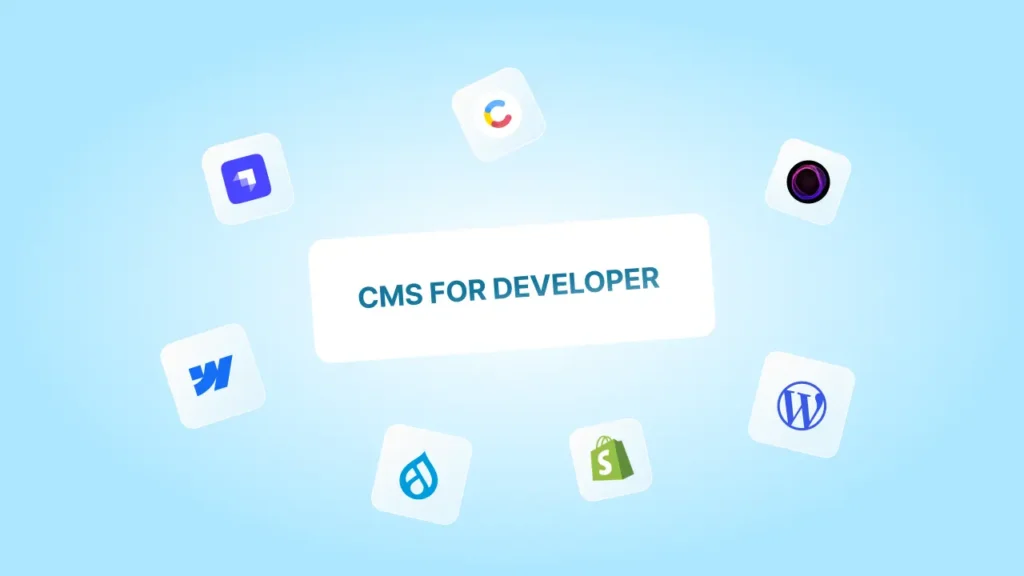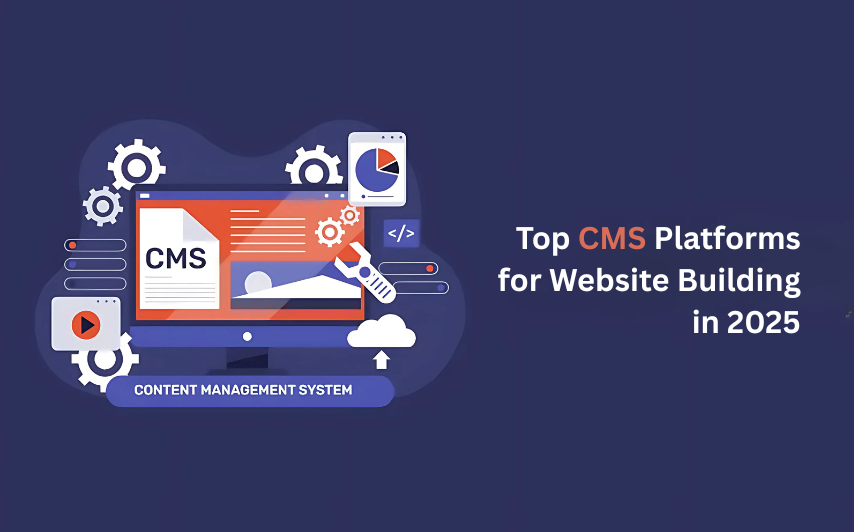When it comes to building a successful website in 2025, choosing the right CMS platform is crucial. With so many options available, businesses, bloggers, creators, and even beginners are searching for the best CMS for SEO, scalability, and ease of use.
Whether you’re after an easy website builder, a platform with deep customization, or something eCommerce-friendly, this guide breaks down the top CMS platforms in 2025 based on real-world performance, SEO features, and growth potential.
Let’s get straight to the point.
1. WordPress.org – The Most Trusted CMS Platform
If you ask any experienced web developer or SEO expert in 2025, chances are they’ll still recommend WordPress.org. And there’s a good reason—it powers over 40% of all websites globally.
Why WordPress is still the best CMS for SEO:
- Built-in SEO features plus integration with plugins like Yoast SEO and Rank Math
- Full control over metadata, alt text, permalinks, and schema markup
- Custom post types, page builders, and eCommerce flexibility with WooCommerce
It’s not the easiest platform out of the box, but with a bit of learning, it becomes the best CMS platform for serious growth.
If you’re looking for a search engine-friendly CMS, WordPress tops the list every time.
2. Shopify – The Best CMS for Online Stores in 2025
If you’re planning to launch an online business, Shopify is the most reliable and user-friendly CMS for eCommerce today. What makes it so appealing is its balance of performance, SEO optimization, and business tools.
Why Shopify dominates eCommerce CMS rankings:
- Mobile-first design and lightning-fast page loads
- Fully hosted platform with automatic updates
- Advanced inventory, payment, and shipping management
- Clean URLs, customizable meta titles, and structured data support
Even though it’s not an open-source CMS, Shopify removes all the technical barriers and lets you focus on sales.
For people who want an easy website builder focused on online sales — Shopify is a winner.
3. Wix – The Best Drag-and-Drop Website Builder for Beginners
In 2025, Wix is one of the fastest-growing website builders. It’s not just for personal blogs anymore — even small businesses, coaches, and service providers are using it to build stunning websites with zero coding.
Why Wix is the go-to easy website builder:
- Simple drag-and-drop interface, ideal for non-tech users
- Built-in SEO setup using Wix SEO Wiz
- Pre-designed templates for every industry
- Fast setup and hosting included
Wix is often recommended as the best CMS for beginners who want to go live fast. If you’re looking for an easy website builder with SEO features, Wix should be at the top of your list.
4. Webflow – The Best CMS for Designers in 2025
Webflow combines the freedom of front-end development with the convenience of CMS. It’s a dream platform for web designers, developers, and startups that need full control over their design — without compromising SEO.
Why Webflow stands out among the best CMS platforms:
- Visual designer with precise layout control
- SEO features: custom meta tags, canonical tags, auto-generated sitemaps
- CMS collections for blogs, team members, services, and more
- Integrated AWS hosting and blazing-fast performance
Webflow isn’t exactly an easy website builder, but it is the best CMS for advanced users who want pixel-perfect results and scalable structures.
5. Joomla – A Powerful CMS for Developers and Complex Sites
While Joomla isn’t as mainstream as WordPress or Wix, it remains a solid platform for users who need multi-language support, complex permissions, or modular content structures.
Why Joomla is still in the top CMS race:
- Strong built-in multilingual capabilities
- Advanced user permission settings and workflows
- SEO tools include SEF URLs, metadata editing, and sitemap support
- Open-source flexibility for custom development
If you’re handling a membership site, government portal, or content-heavy platform, Joomla delivers power that most easy website builders simply can’t offer.
What Makes a CMS the Right Fit in 2025?
Choosing the best CMS platform is about more than just looks or price. You need a system that aligns with your growth, content strategy, and digital marketing goals.
Here are a few must-haves:
- SEO Optimization: Built-in SEO tools or plugin compatibility for optimizing meta descriptions, heading tags, and image alt text.
- Scalability: Can it handle growing traffic, more pages, or integrations like CRMs and payment gateways?
- User Interface: Is it an easy website builder or does it require some coding knowledge?
- Support & Community: Does the platform have helpful documentation, tutorials, and community forums?

CMS Platform Comparison (2025 Edition)
| CMS | Best For | SEO-Friendly | Beginner Friendly | Hosting Included | Customization |
|---|---|---|---|---|---|
| WordPress | Blogs, agencies, enterprise | Yes | Moderate | No | Very High |
| Shopify | eCommerce stores | Yes | High | Yes | Medium |
| Wix | Beginners, creatives | Yes | Very High | Yes | Medium |
| Webflow | Designers, startups | Yes | Moderate | Yes | High |
| Joomla | Developers, content portals | Yes | Low | No | Very High |
Final Thoughts: Which CMS Should You Choose in 2025?
The best CMS platform in 2025 depends entirely on your website goals.
- If you’re focused on SEO optimization, WordPress is unmatched.
- If you want to launch an online store, Shopify is purpose-built for success.
- For a quick launch with zero coding, Wix is the top easy website builder.
- Designers who care about performance and branding will love Webflow.
- Complex sites with layered access needs? Joomla is your best bet.
So, don’t just Google “top CMS in 2025” and pick the first option. Think about your audience, your budget, your technical comfort level — and your future goals.
Your website deserves more than just a builder — it needs the right content management system behind it.
If you’re serious about building a fast, SEO-ready, and scalable website in 2025, start by picking the best CMS platform — not just the most popular one.
Still confused? Start with an easy website builder like Wix or Shopify, and scale up when needed.













